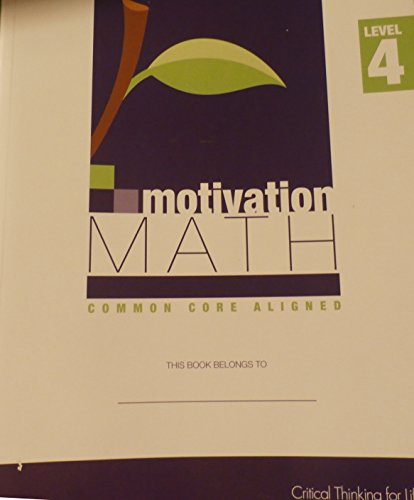
Used like new

Used like new

Empowerment programs swept through corporate America in the last two decades. Unfortunately, bolting empowerment programs onto existing power structures often led to the appearance of empowerment–without the actual power. Going beyond empowerment means that people have all the power they need from the very moment they join a company–regardless of the level of responsibility or complexity. They a…
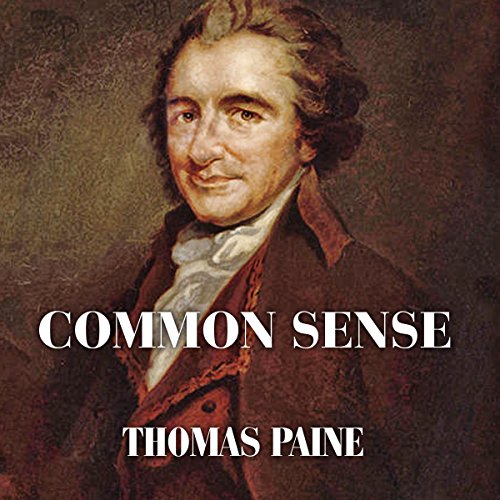
Common Sense is a pamphlet written by Thomas Paine in 1775 advocating independence from the United Kingdom to people in the 13 colonies. It was the most notable piece of literature at the time of its publication and remains an important part of history for the United States.
Listen to this wonderful narration of Common Sense by Jeff Moon and you’ll see why this is arguably one of the most notable pieces advocating for the United States’ independence from Great Britain.
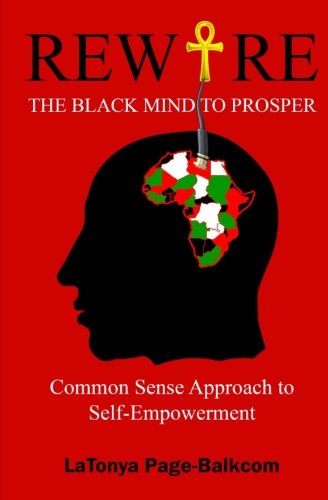
“Rewire the Black mind to Prosper” was written as an aide to rapid comprehension of essential common-sense ideas, to give Africans in America, perhaps of all levels of Academia, an opportunity to understand how to control situations and gain an edge over a mentality of defeat in an unjust society, in efforts to gain understanding of and or perhaps power over any situation in all areas of Life. In retrospect, there are no truly original ideas to be had in this world. Many ideas come to us and are formulated from prior influences or knowledge gained from others, as any Book that was written over the course of thousands of years… “Rewire the Black Mind to Prosper” perhaps, will bring a new common-sense idea to help an oppressed Melanated People to learn how to maneuver as a God and perhaps gain Self- Empowerment in Society.

Brand New

This book fundamentally revises our notion of why soldiers of the eighteenth century enlisted, served and fought. In contrast to traditional views of the brutal conditions supposedly prevailing in old-regime armies, Ilya Berkovich reveals that soldiers did not regard military discipline as illegitimate or unnecessarily cruel, nor did they perceive themselves as submissive military automatons. Instead he shows how these men embraced a unique corporate identity based on military professionalism, forceful masculinity and hostility toward civilians. These values fostered the notion of individual and collective soldierly honour which helped to create the bonding effect which contributed toward greater combat cohesion. Utilising research on military psychology and combat theory, and employing the letters, diaries and memoirs of around 250 private soldiers and non-commissioned officers from over a dozen different European armies, Motivation in War transforms our understanding of life of the common soldier in early modern Europe.
This book fundamentally revises our notion of why soldiers of the eighteenth century enlisted, served and fought. In contrast to traditional views of the brutal conditions supposedly prevailing in old-regime armies, Ilya Berkovich reveals that soldiers did not regard military discipline as illegitimate or unnecessarily cruel, nor did they perceive themselves as submissive military automatons. Instead he shows how these men embraced a unique corporate identity based on military professionalism, forceful masculinity and hostility toward civilians. These values fostered the notion of individual and collective soldierly honour which helped to create the bonding effect which contributed toward greater combat cohesion. Utilising research on military psychology and combat theory, and employing the letters, diaries and memoirs of around 250 private soldiers and non-commissioned officers from over a dozen different European armies, Motivation in War transforms our understanding of life of the common soldier in early modern Europe.
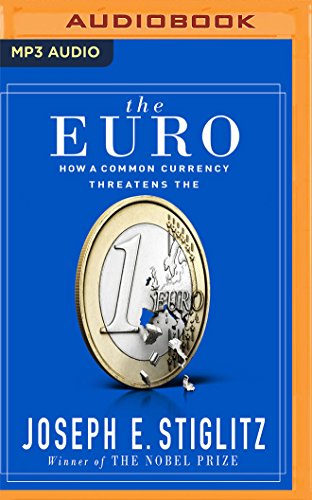
Can Europe prosper without the euro?
In 2010, the 2008 global financial crisis morphed into the “eurocrisis”. It has not abated. The 19 countries of Europe that share the euro currency – the eurozone – have been rocked by economic stagnation and debt crises. Some countries have been in depression for years while the governing powers of the eurozone have careened from emergency to emergency, most notably in Greece.
In The Euro, Nobel Prize-winning economist and best-selling author Joseph E. Stiglitz dismantles the prevailing consensus around what ails Europe, demolishing the champions of austerity while offering a series of plans that can rescue the continent – and the world – from further devastation.
Hailed by its architects as a lever that would bring Europe together and promote prosperity, the euro has done the opposite. As Stiglitz persuasively argues, the crises revealed the shortcomings of the euro. Europe’s stagnation and bleak outlook are direct results of the fundamental challenges in having a diverse group of countries share a common currency – the euro was flawed at birth, with economic integration outpacing political integration. Stiglitz shows how the current structure promotes divergence rather than convergence. The question, then, is: Can the euro be saved?
After laying bare the European Central Bank’s misguided inflation-only mandate and explaining how eurozone policies, especially toward the crisis countries, have further exposed the zone’s flawed design, Stiglitz outlines three possible ways forward: fundamental reforms in the structure of the eurozone and the policies imposed on the member countries; a well-managed end to the single-currency euro experiment; or a bold, new system dubbed the “flexible euro”.
With its lessons for globalization in a world economy ever more deeply connected, The Euro is urgent and essential listening.
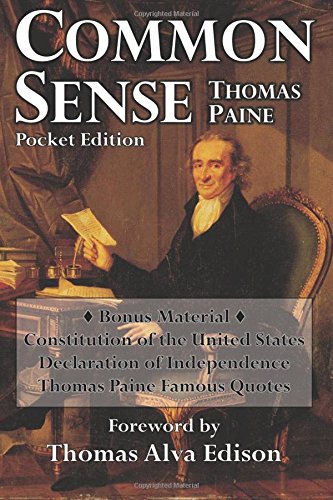
This convenient little pocket book combines three of the most influential works that changed the course of American history and the world.
Common Sense by Thomas Paine The Constitution of the United States The Declaration of Independence also included: Famous Quotes of Thomas Paine.
July 4th, 1776 is a date that has gone down in history as a day that changed the world. On this day America announced that its thirteen colonies, then at war with Great Britain, were no longer under the rule of King George III and Britain. For years prior, things had already been heating up between the colonies and Britain. Colonists had been growing weary of the unfair trade and taxes being imposed by the British parliament and in 1773 they destroyed a shipment of tea in what is now known as the Boston Tea Party. This act brought more pressure from the British government and the colonists soon formed a Continental Congress to coordinate their resistance. The first major conflicts were the battles of Lexington and Concord.
During these first few years of conflict there arose a true patriot whose ideals would prove to be a key component in America’s desertion from Britian. Throughout history many patriots have earned their fame through the use of weapon on the battle field. Thomas Paine proved his patriotism through the use of his pen and standing firm on the principles he wrote about. He was born in 1737 and, at the age of 37, emigrated to America with the assistance of Benjamin Franklin. He arrived just in time for the Revolutionary War. He is known as The Father of the American Revolution because of the pamphlets he wrote calling for independence from British rule. His most noted pamphlet is Common Sense. It was published on January 10, 1776. Paine didn’t sign his name as author but instead signed “by an Englishman”. It sold over 100,000 copies in the first three months and more than 500,000 over the course the Revolution. Common Sense was so influential that John Adams said, “Without the pen of the author of Common Sense, the sword of Washington would have been raised in vain.”
Thomas Edison wrote…
“We never had a sounder intelligence in this Republic. He was the equal of Washington in making American liberty possible. Where Washington performed Paine devised and wrote. The deeds of one in the Weld were matched by the deeds of the other with his pen. I consider Paine our greatest political thinker. As we have not advanced, and perhaps never shall advance, beyond the Declaration and Constitution, so Paine has had no successors who extended his principles. Although the present generation knows little of Paine’s writings, and although he has almost no influence upon contemporary thought, Americans of the future will justly appraise his work. I am certain of it.”
The influence and patriotism of Thomas Paine has faded over the decades. It is our hope that this ‘pocket edition’ may help to reignite the love and hope he and other founding fathers had for the American experience.